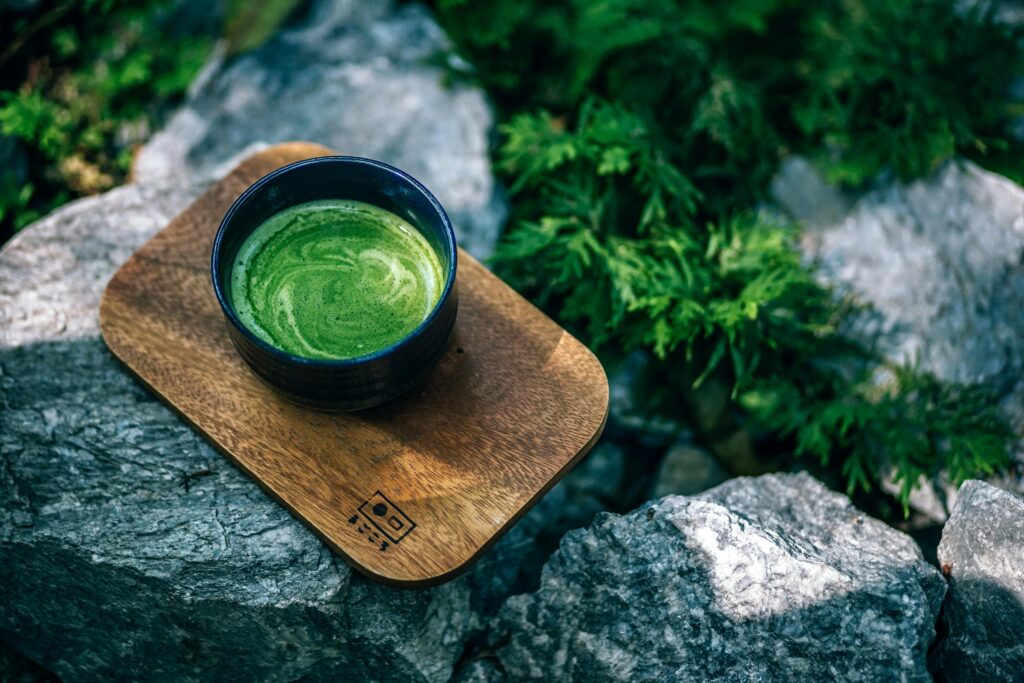In recent years, matcha tea has transformed from a traditional Japanese ritual into a global wellness trend. You’ve probably seen vibrant green lattes in cafés, Instagram-worthy matcha bowls, or countless claims about its health benefits.
But what exactly is matcha? And why do nutritionists, wellness experts, and even doctors recommend it as one of the healthiest teas on the planet?
This article takes a deep dive into the science-backed benefits of matcha, how it differs from regular green tea, the best ways to prepare it, and how to incorporate it into your daily routine for maximum results.
What Is Matcha?
Matcha is a finely ground powder made from specially grown Camellia sinensis leaves—the same plant that produces green tea. However, matcha differs in its cultivation and preparation:
- The tea plants are shade-grown for about three weeks before harvest. This boosts chlorophyll production, giving matcha its rich green color.
- Only the youngest, most nutrient-rich leaves are harvested.
- After steaming and drying, the leaves are stone-ground into an ultra-fine powder.
Unlike regular green tea, where you steep the leaves and discard them, matcha allows you to consume the entire leaf. This means you’re getting higher concentrations of antioxidants, amino acids, and nutrients.
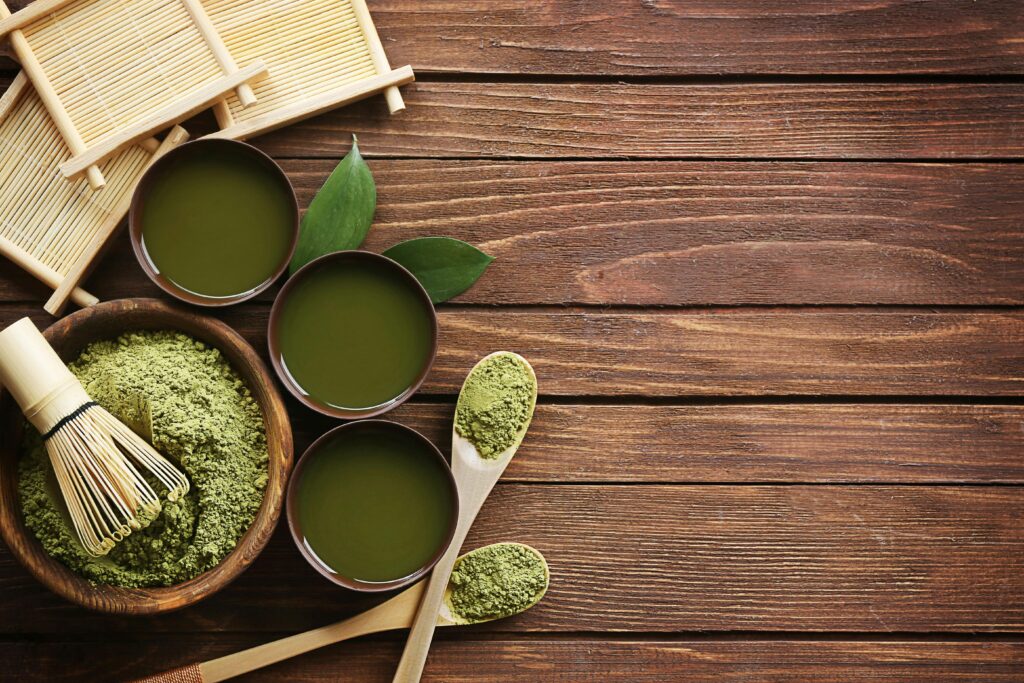
Nutritional Profile of Matcha
Matcha is often called a “superfood,” and for good reason. Just one serving of high-quality matcha contains:
- 137 times more antioxidants than standard green tea.
- EGCG (epigallocatechin gallate), a powerful catechin linked to cancer prevention and heart health.
- L-theanine, an amino acid that promotes calm focus.
- A gentle dose of natural caffeine (about 70 mg per cup—less than coffee but more than green tea).
- Vitamins A, C, E, and K.
- Trace minerals like potassium, zinc, and magnesium.
This combination makes matcha one of the most nutrient-dense beverages you can drink.
Proven Health Benefits of Matcha
1. Rich in Antioxidants
Matcha is packed with catechins, a type of antioxidant that helps fight free radicals. The high EGCG levels in matcha may help:
- Protect cells from oxidative stress.
- Support heart and brain health.
- Slow down aging processes.
2. Boosts Mental Focus and Calmness
Thanks to its unique balance of caffeine and L-theanine, matcha provides steady energy without the jitters. L-theanine increases alpha brain waves, promoting relaxation while keeping you alert.
This makes matcha popular among students, professionals, and even monks who drink it during meditation.
3. Supports Weight Management
Matcha has been linked to increased metabolism and enhanced fat oxidation. Studies suggest drinking matcha before exercise can help the body burn calories more efficiently.
Combined with its appetite-regulating properties, it can be a powerful ally for weight management.
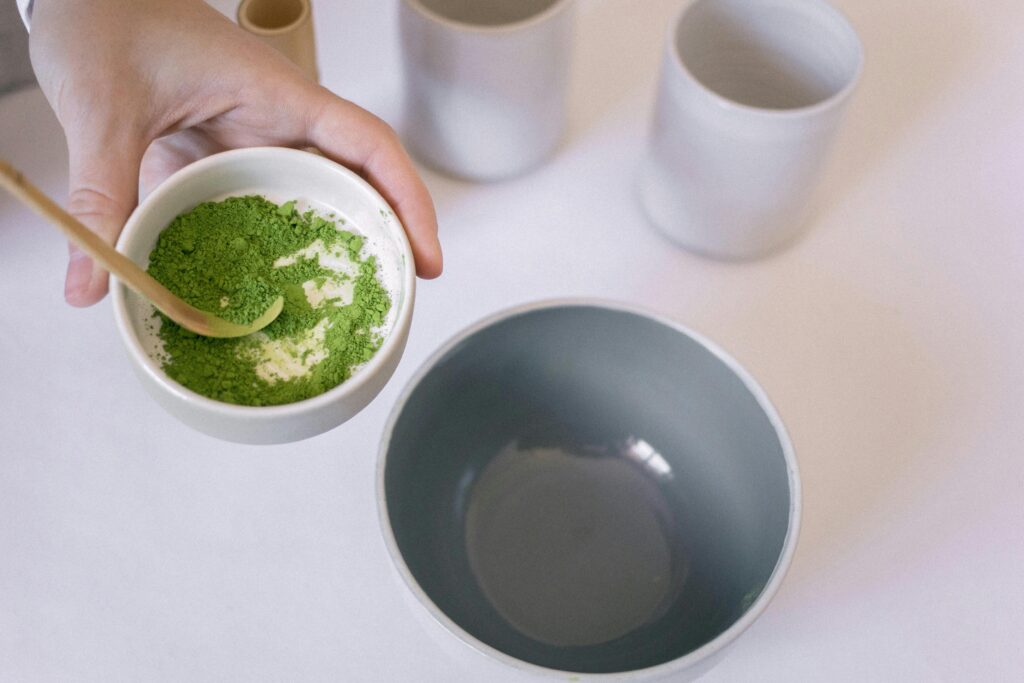
4. Improves Heart Health
Regular matcha consumption has been associated with:
- Lower LDL cholesterol (“bad” cholesterol).
- Reduced triglycerides.
- Improved circulation and blood pressure regulation.
All of these contribute to long-term cardiovascular protection.
5. Strengthens the Immune System
The catechins in matcha have antimicrobial and antiviral properties, helping the body defend itself against infections. Vitamins and minerals in matcha also support overall immunity.
6. Promotes Skin Health
Matcha’s antioxidants help combat inflammation and may reduce acne breakouts. Its chlorophyll content also aids in detoxification, promoting clearer and more radiant skin.
7. Natural Detoxifier
The high chlorophyll levels in matcha make it one of the best natural detoxifiers. Chlorophyll helps cleanse the blood, remove toxins, and support liver health.
8. Enhances Exercise Performance
Athletes are increasingly turning to matcha for its ability to increase endurance and reduce fatigue. The combination of caffeine and catechins supports energy while minimizing post-workout inflammation.
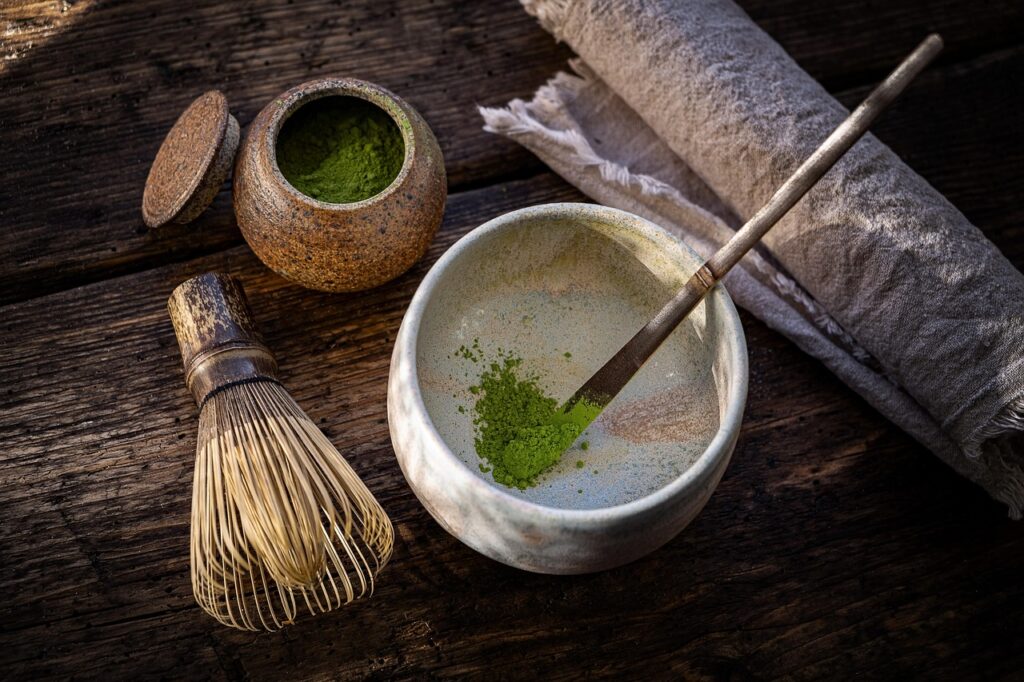
Matcha vs. Green Tea: What’s the Difference?
While both come from the same plant, matcha and green tea differ significantly:
| Feature | Green Tea | Matcha |
|---|---|---|
| Preparation | Leaves steeped | Powder consumed |
| Antioxidants | Moderate | Extremely high |
| Caffeine | 30–40 mg | 70 mg |
| Flavor | Light, grassy | Rich, umami |
| Benefits | General wellness | Enhanced energy, focus, and detox |
If you already enjoy green tea, switching to matcha can multiply the benefits many times over.
How to Prepare Matcha Tea
Traditional preparation involves a few tools, but you can enjoy matcha in multiple ways:
Traditional Method (Japanese Tea Ceremony Style)
- Sift 1–2 teaspoons of matcha powder into a bowl.
- Add 2 ounces of hot (not boiling) water.
- Whisk with a bamboo whisk (chasen) until frothy.
- Top up with more hot water or milk for a latte.
Quick Method
- Blend matcha powder into smoothies, protein shakes, or overnight oats.
- Stir it into warm milk for a creamy matcha latte.
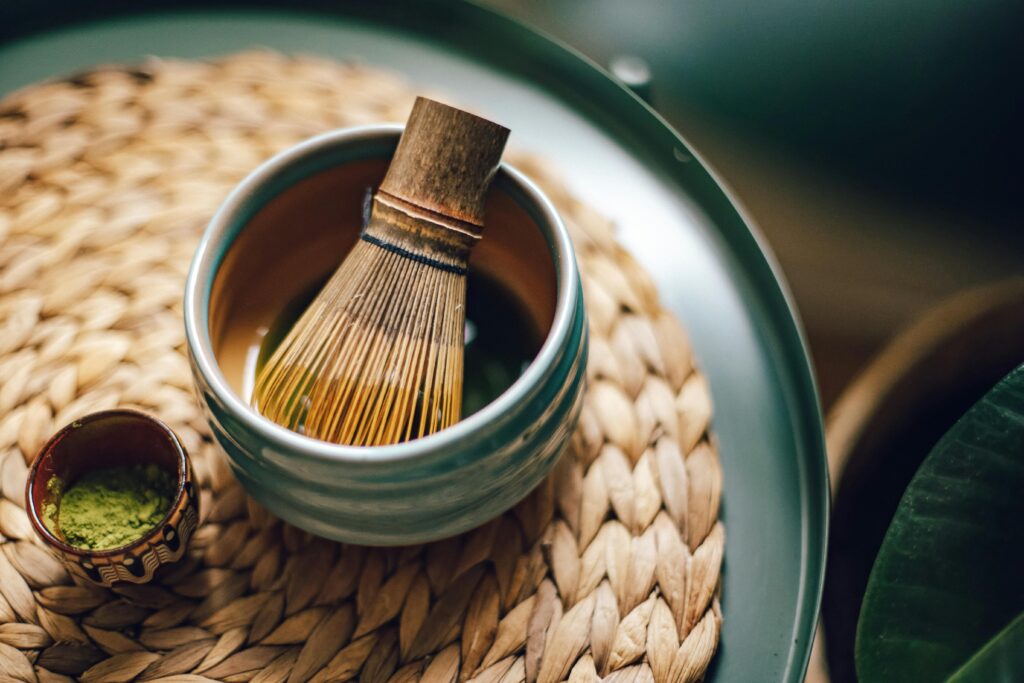
How to Choose High-Quality Matcha
Not all matcha is created equal. To enjoy the full benefits, look for:
- Ceremonial grade matcha – the highest quality, vibrant green, smooth flavor.
- Origin from Japan – regions like Uji and Nishio produce premium matcha.
- Stone-ground processing – ensures fine texture and nutrient preservation.
For beginners or everyday use, culinary grade matcha is more affordable and still highly nutritious.
Side Effects and Precautions
Matcha is generally safe, but because it’s potent, moderation is key. Possible side effects include:
- Mild stomach upset if consumed in excess.
- Sensitivity to caffeine in people with low tolerance.
For most people, 1–2 cups per day is ideal to maximize benefits without overdoing it.
Where to Buy Matcha Tea
Not all matcha products on the market meet quality standards. Many are dull in color, bitter in taste, and lack proper nutrients.
That’s why it’s best to buy from a trusted source.
We recommend exploring high-quality matcha powders available on Amazon. With verified reviews, fast delivery, and authentic Japanese options, Amazon is a convenient and reliable choice.
Click here to shop top-rated Matcha teas on Amazon
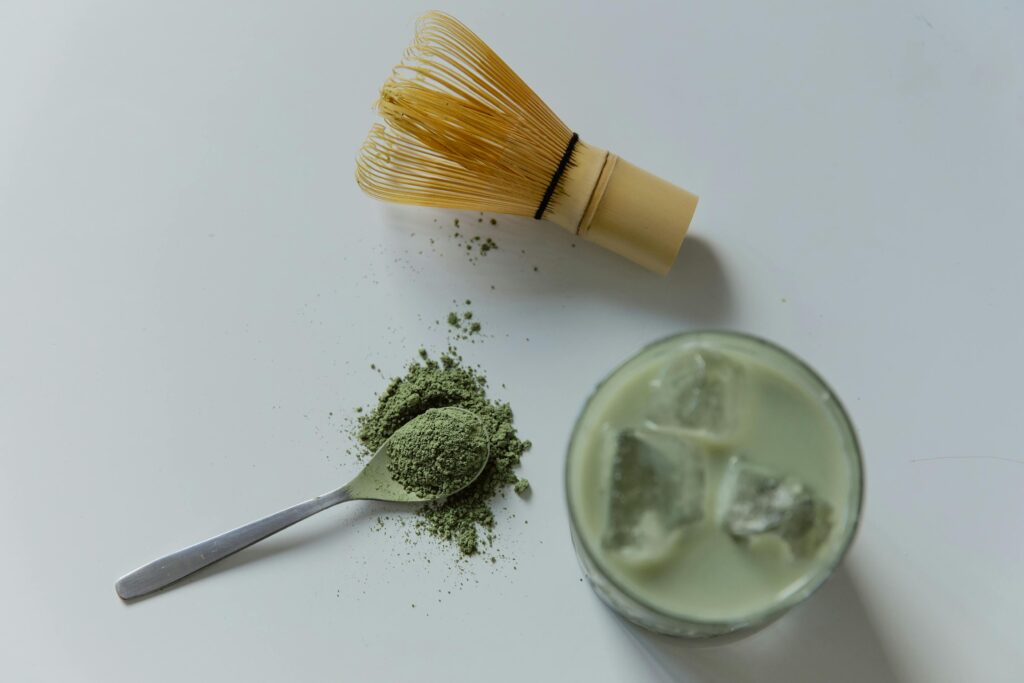
Creative Ways to Use Matcha
Matcha isn’t just for tea—you can use it in a variety of recipes:
- Matcha lattes with almond, oat, or coconut milk.
- Matcha chia pudding.
- Matcha pancakes or energy balls.
- Matcha ice cream or baked goods.
Its earthy, umami flavor pairs well with sweet and savory dishes alike.
Is Matcha Worth It?
Absolutely.
Matcha is more than a trendy drink—it’s a centuries-old superfood backed by modern science. With its unparalleled levels of antioxidants, focus-enhancing L-theanine, and metabolism-boosting properties, matcha supports nearly every aspect of health.
Whether you’re looking for a natural energy boost, clearer skin, stronger immunity, or a mindful daily ritual, matcha delivers.
✅ And the best part? It’s delicious, versatile, and easy to make part of your routine.
Don’t wait—discover high-quality Matcha tea on Amazon today and bring this ancient wellness tradition into your modern life.
Frequently Asked Questions (FAQ) About Matcha Tea
1. What makes matcha different from regular green tea?
Matcha is made from shade-grown tea leaves that are stone-ground into powder. Unlike green tea, where you steep and discard the leaves, matcha allows you to consume the entire leaf, giving you higher levels of antioxidants, caffeine, and nutrients.
2. Does matcha have more caffeine than coffee?
Matcha has about 70 mg of caffeine per cup, which is less than a typical cup of coffee (90–120 mg). However, thanks to L-theanine, matcha provides calm, sustained energy without the jitters or crash often associated with coffee.
3. Can matcha help with weight loss?
Yes. Studies suggest that matcha can boost metabolism and fat burning, especially when consumed before exercise. Combined with a healthy diet and lifestyle, it may support long-term weight management.
4. What are the side effects of drinking matcha?
Matcha is safe for most people, but excessive consumption can cause stomach upset, headaches, or caffeine sensitivity. Stick to 1–2 cups per day for optimal benefits.
5. Is matcha good for skin health?
Absolutely. Matcha’s high antioxidant and anti-inflammatory properties can help reduce acne, support collagen production, and promote a clearer, glowing complexion.
6. Can I drink matcha every day?
Yes. Drinking matcha daily is safe and even recommended for consistent benefits. Just be mindful of your total caffeine intake if you also consume coffee or other teas.
7. What’s the best way to prepare matcha?
The traditional method involves whisking matcha powder with hot (not boiling) water using a bamboo whisk until frothy. You can also enjoy it as a latte, smoothie, or even in recipes like pancakes or desserts.
8. Where is the best place to buy high-quality matcha?
Authentic, vibrant green matcha is best sourced from Japan. To ensure freshness and quality, it’s recommended to buy from trusted sellers.
👉 You can find top-rated matcha powders on Amazon with verified reviews:
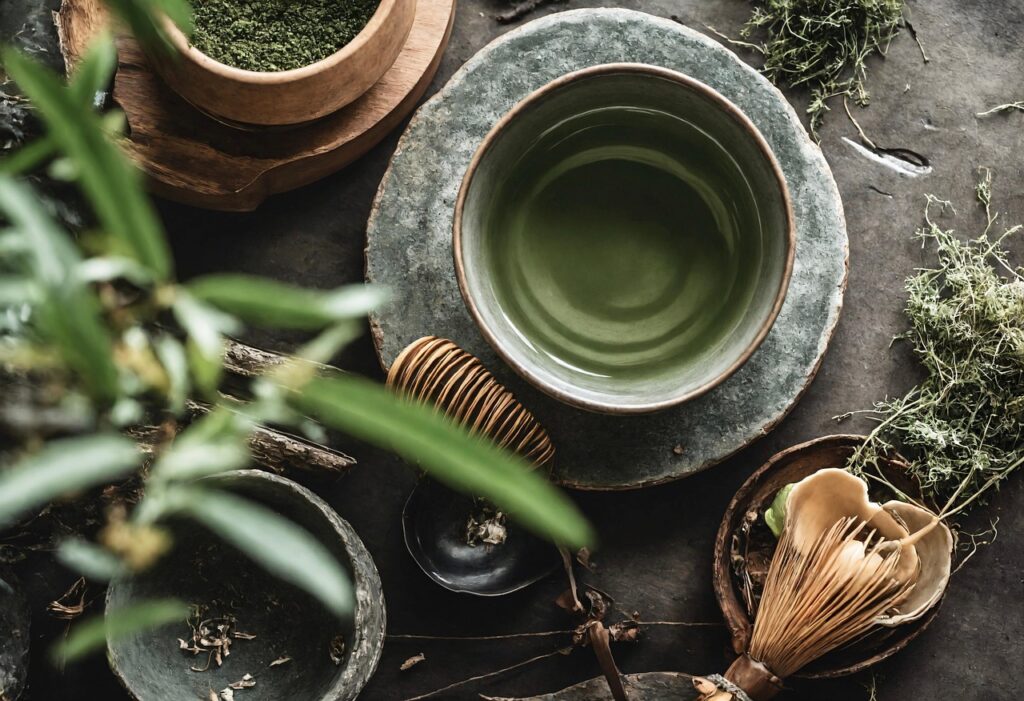
Disclaimer
This article is for informational purposes only and not intended as medical advice. Always consult your doctor before making significant changes to your diet or if you have health conditions related to caffeine or metabolism.

